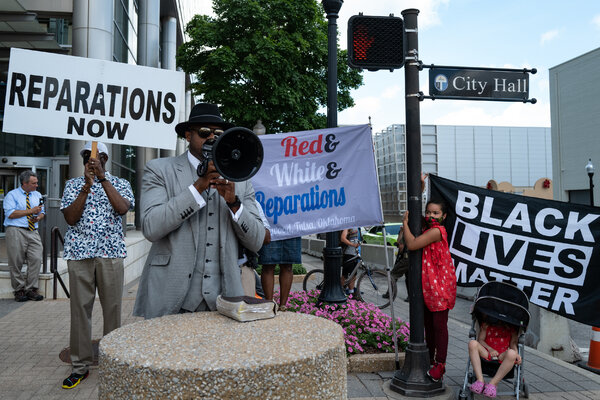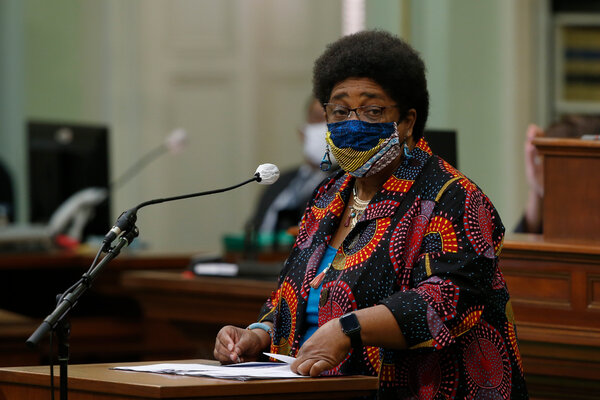A00008 - Reparations in California
Peace,
Everett "Skip" Jenkins
Fairfield, California
December 8, 2021
It’s Wednesday. California’s first-in-the-nation reparations task force is tackling big questions. Plus, redistricting in California is scrambling the political fortunes of both parties. |
|
After the killing of George Floyd in Minneapolis, as the nation grappled with how to right a long history of wrongs, California took a momentous step in the name of racial equity. |
In September 2020, the state created a task force to study and recommend reparations for Black Californians, particularly those descended from slaves. The effort is the only one in the nation of this scale. |
If you’re wondering, yes, California joined the union as a free state and never officially sanctioned slavery. But voters here supported pro-slavery politics for decades and, through a variety of discriminatory housing, voting and criminal justice policies, hampered the ability of Black Americans to accumulate wealth and get ahead, experts say. |
|
“It is clearly a continuing struggle in California, I think, to live up to what it perceives itself to be: as this wonderful dream that has equal opportunity and access for all,” Secretary of State Shirley Weber, who wrote the reparations legislation, said during a meeting this year. |
The nine-member task force, which held its inaugural gathering in June, faces several daunting questions: Who should receive reparations? In what form? And how much? |
For the past several months, the group has been gathering evidence and weighing proposals before it is expected to submit its recommendations to the Legislature next summer. On Tuesday, the panel commenced its latest two-day meeting, diving into the world of housing, gentrification and infrastructure in California. |
Experts testified about California’s history of redlining, building freeways through Black neighborhoods and unfairly seizing Black properties through eminent domain. |
(Other meeting agendas tackle school segregation, environmental justice, the Great Migration, the history of slavery and more. You can watch a livestream of today’s meeting, which will focus on entertainment and sports, here.) |
Bruce Appleyard, associate professor of city and regional planning at San Diego State University, told the panel on Tuesday that an array of discriminatory housing policies cut off African Americans from a major source of wealth for middle-class families: equity from housing. |
Although African American incomes on average are about 60 percent of white incomes, Appleyard said, “African American wealth is only about 5 to 9 percent of white wealth.” |
That carries significant consequences. People who identify as Black or African American make up 6.5 percent of California’s total population but about 40 percent of our homeless population, according to some estimates. |
“The Black people overrepresented in the unhoused population is neither incidental or accidental,” Brandon Greene, director of the racial and economic justice program at the A.C.L.U. of Northern California, told the panel. |
Reparations for slavery in the United States have been debated for decades, but little progress has been made until recently. |
Though federal legislation has largely stalled, political candidates nationwide increasingly support reparations, and cities including Evanston, Ill., and Detroit have taken steps to provide financial compensation to Black Americans. |
At the first meeting of California’s new task force in June, the panel reviewed examples of other reparations programs: Germany paid billions to Holocaust victims, and the United States provided restitution to Japanese Americans incarcerated during World War II. |
In 2015, the United States also authorized payments of up to $10,000 per day for dozens of people taken hostage in Iran in 1979, the nation’s largest reparations program ever. |
A. Kirsten Mullen, co-author of “From Here to Equality,” explained to the task force: “At the same rate, compensation for a Black American during a single decade of Jim Crow would be $36.5 million.” |



Comments
Post a Comment